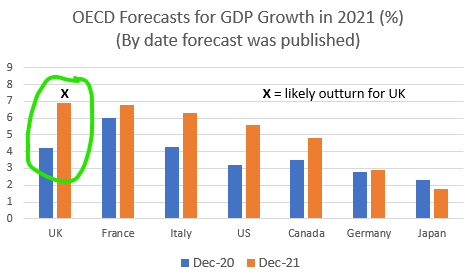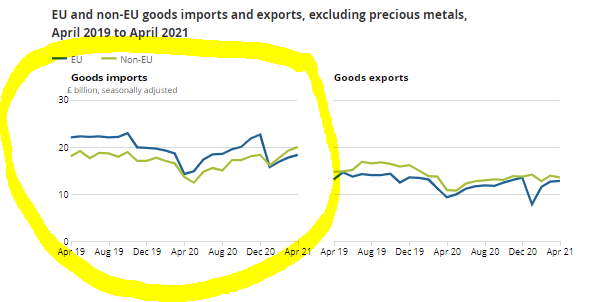
Should #Truss go for the ‘nuclear' option of a 5% #VAT cut? In favour…
✅ can be done quickly (immediate boost to spending power)
✅ saves *average* household c£1,300 a year
✅ lowers headline #inflation (temporarily)
✅ struggling businesses could use it to help cashflow...
✅ can be done quickly (immediate boost to spending power)
✅ saves *average* household c£1,300 a year
✅ lowers headline #inflation (temporarily)
✅ struggling businesses could use it to help cashflow...
Against...
❌ #VAT is one of the least bad (e.g. non-distortionary) taxes
❌ cutting it would have few supply-side benefits
❌ would be at least mildly #regressive (see my earlier tweet on this 🤓)
❌ a 5% cut would ‘cost’ £38 billion (could be better deployed elsewhere?)...
❌ #VAT is one of the least bad (e.g. non-distortionary) taxes
❌ cutting it would have few supply-side benefits
❌ would be at least mildly #regressive (see my earlier tweet on this 🤓)
❌ a 5% cut would ‘cost’ £38 billion (could be better deployed elsewhere?)...
My verdict: it's right to consider cutting #VAT across the board (not just on #energy). It should only be a 'nuclear' option, as part of a broader package, but the scale of the crisis means everything should be on the table.
#truss #trussonomics
#truss #trussonomics
• • •
Missing some Tweet in this thread? You can try to
force a refresh







